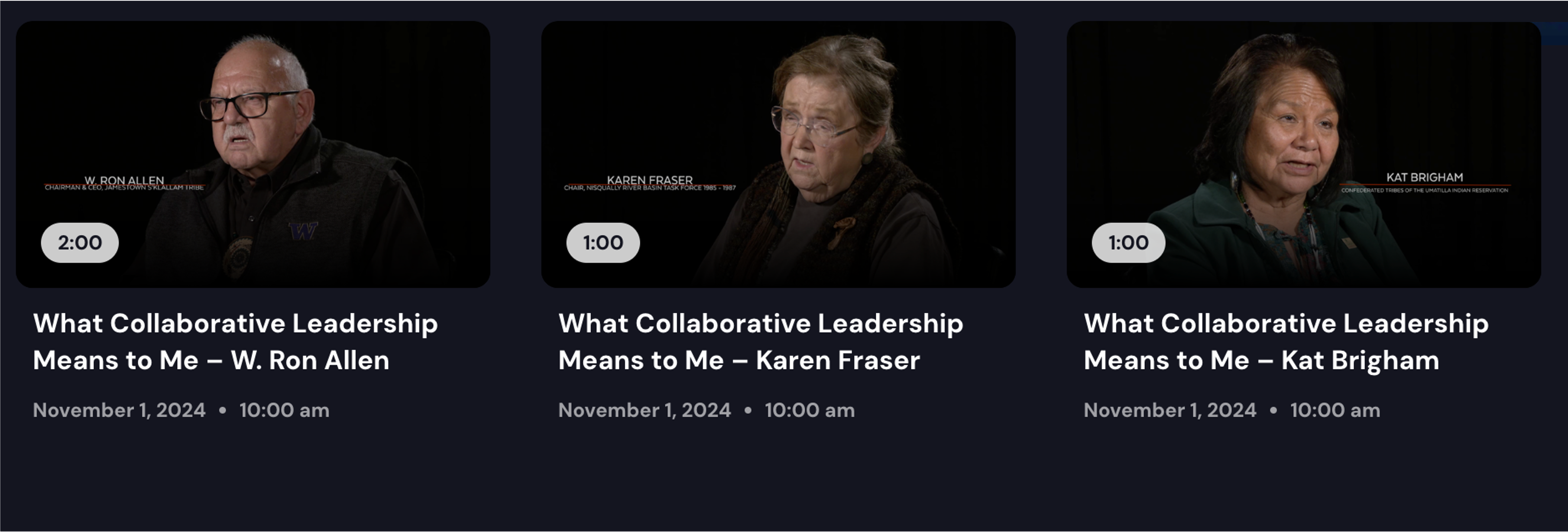The challenges facing Puget Sound—from salmon recovery to climate resilience—demand more than technical expertise. They require leaders who can navigate complex relationships, build trust across diverse communities, and find common ground where others see only conflict. But what does this kind of collaborative leadership actually look like in practice?
In partnership with TVW, the Collaborative Leadership Program at the University of Washington’s Center for Urban Waters/Puget Sound Institute has conducted oral history interviews with people who have been part of landmark natural resource collaborations in Washington state since the mid-1970s. We asked more than 60 conveners, sponsors, participants, and practitioners a simple question: “What does collaborative leadership mean to you?”
We invite you to watch all six short video clips produced by TVW or peruse more than 60 in depth video interviews on the Internet Archive.
All of these leaders—tribal chairs, former governors, mediators, legislative leaders—have spent decades working on some of our region’s toughest environmental challenges. What they told us goes way beyond management techniques. They’re talking about a fundamentally different approach to power, relationships, and making change happen.
“What does collaborative leadership mean to you?”
“We are two societies, two nations, two peoples walking together respectfully.” ––W. Ron Allen, Chair, Jamestown S’Klallam Tribe
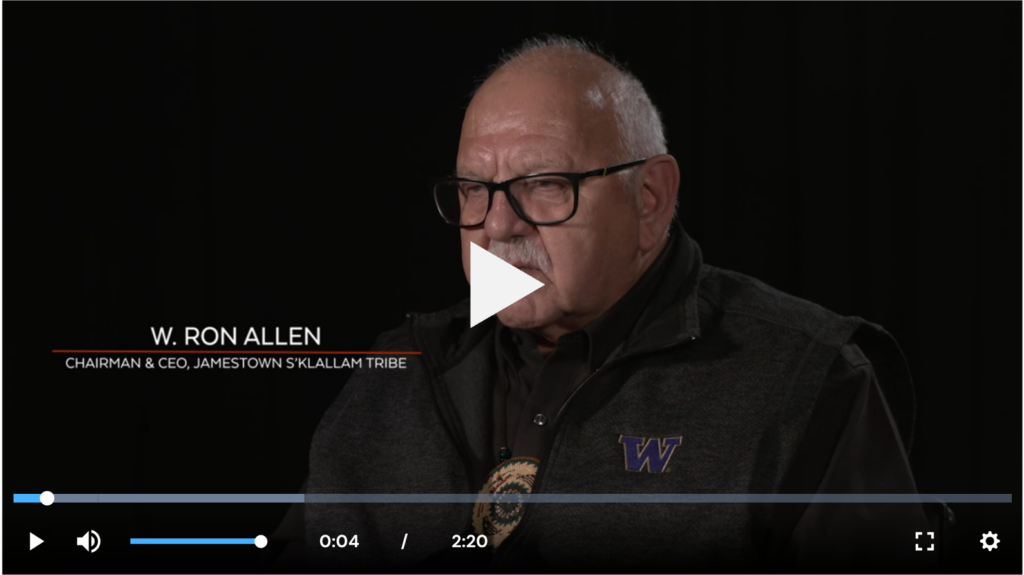
“You’re not better than each other. You’re partners.” ––Kat Brigham, Confederated Tribes of the Umatilla Indian Reservation
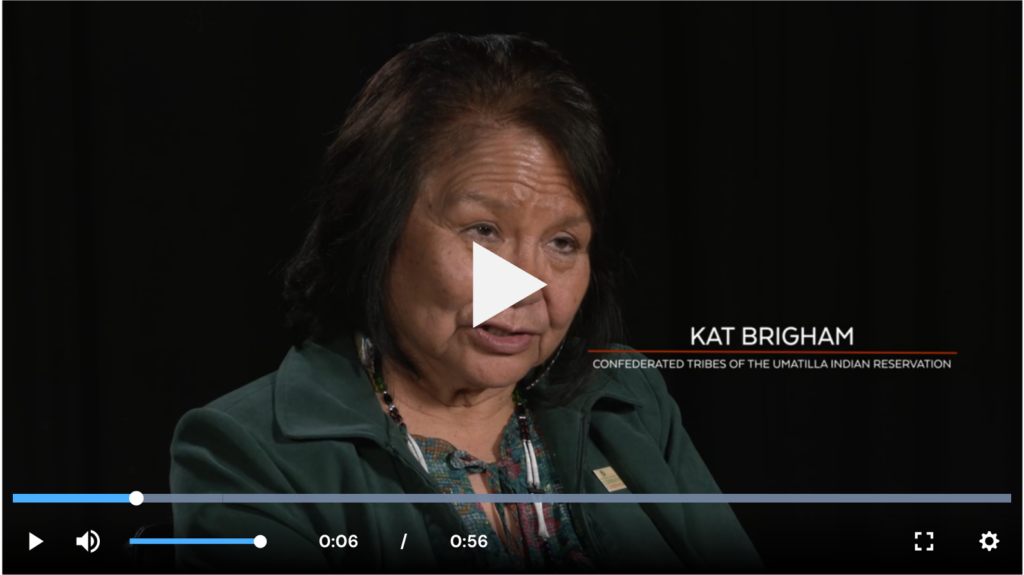
“You’re willing to take a risk…You have to be ready to continue to exhibit that leadership for years.” ––Jay Manning, former Leadership Council Chair, Puget Sound Partnership; former Governor’s Chief of Staff; former Washington Department of Ecology Director
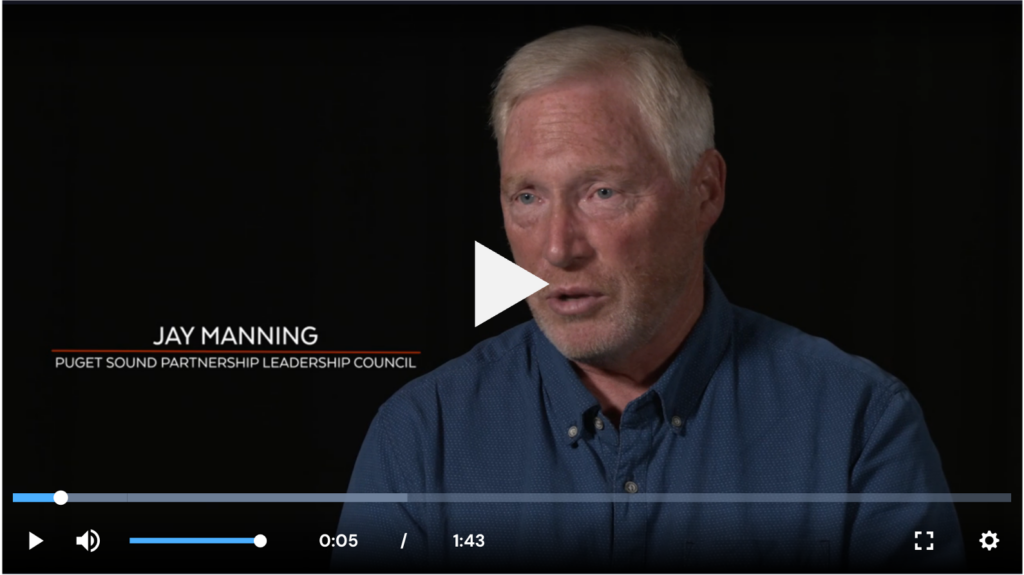
“Really involving more people. Because quite frankly, if you have more people involved and you reach an agreement, there’s ownership.” ––Gary Locke, former governor of Washington
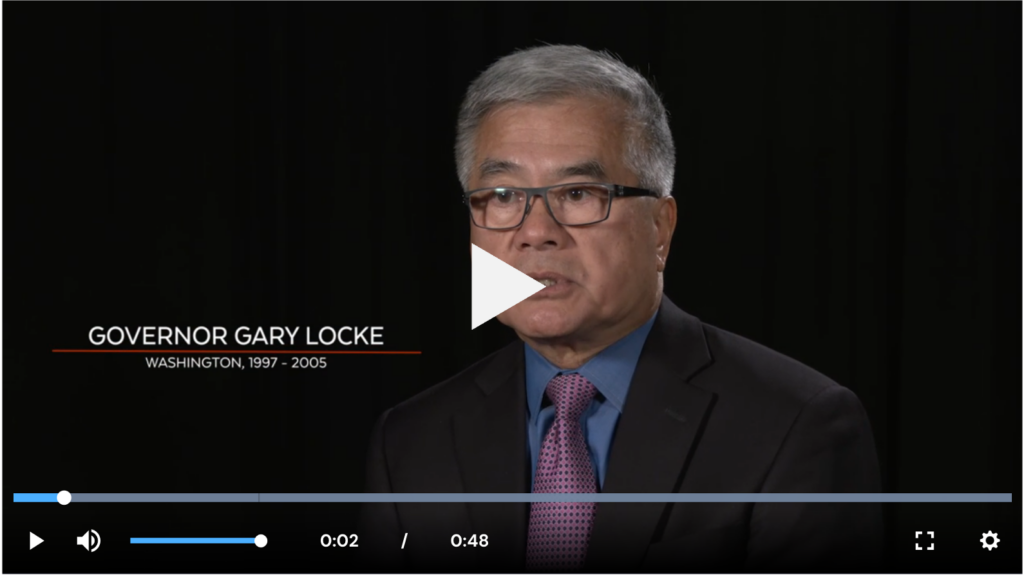
Training the next generation of collaborative leaders
Experienced leaders didn’t figure this stuff out overnight. They learned from mentors, made mistakes, took risks, and built relationships over decades. Now we’re working to connect their hard-won wisdom with the next generation of environmental professionals.
The environmental challenges we face today are not getting any simpler. The workforce implementing restoration and protection strategies needs collaborative skills to navigate conflict, understand how everything connects, and build the relationships that make real change possible. That’s why we’re developing training specifically focused on these collaborative leadership skills.
Whether you’re just starting out in natural resources, looking to strengthen your collaborative skills, or interested in mentoring emerging leaders, we want to hear from you.
Here’s how to get involved:
- Help us design pilot courses and workshops on collaborative leadership
- Join our intergenerational dialogues where emerging and experienced leaders actually talk to each other
- Share your ideas about what collaborative leadership training should look like for today’s challenges
The leaders in these videos didn’t work alone. Washington has a long history of people finding ways to work together on tough environmental problems. Now it’s the next generation’s turn to continue that legacy.
Want to learn more? Contact Michael Kern at mkern@uw.edu or 206.601.4766.
The Collaborative Leadership Program is part of UW’s Puget Sound Institute. The Developing Collaborative Leaders for Puget Sound Project is funded wholly or in part by the U.S. Environmental Protection Agency under assistance agreement PC-01J89501 through the Washington Department of Fish and Wildlife. The contents of this blogpost do not necessarily reflect the views and policies of the Environmental Protection Agency or the Washington Department of Fish and Wildlife, nor does mention of trade names or commercial products constitute endorsement or recommendation for use.
